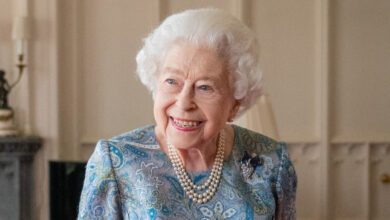 “I have never advocated war except as a means of peace.” – Ulysses S Grant
“I have never advocated war except as a means of peace.” – Ulysses S Grant
Podcast: Play in new window | Download
Subscribe: Spotify | Amazon Music | Youtube Music | RSS
Ulysses S. Grant Biography
Born on 27 April 1822 in Point Pleasant, Ohio, Hiram Ulysses Grant was a United States general and commander during the American Civil War for the Union armies and later became the 18th president of the United States. His father was Jesse Root Grant who was a tanner as well as a businessman, and Ulysses was his firstborn son.
He grew up in Georgetown, Ohio experiencing a fairly nondescript childhood. But as a child, he was greatly interested in horses and showed promise as a horseman. As a youth, he was timid and reserved, taking after his mother more than his father who was quite outgoing.
The thought of working at his father’s tannery business was not one that Ulysses savoured and
at age seventeen his father orchestrated a way for Ulysses to enter the U.S Military Academy at West Point — quite an honour. The school incorrectly wrote his name as Ulysses S Grant, which in order to avoid being rejected by the school, Grant accepted as his new name. Ulysses did not do well at West Point and earned average grades as well as demerits for poor dress and tardiness. He was excellent at horsemanship, and did well in mathematics and geology but decided that the Academy was not charming. He did graduate in 1843 21st out of 39 students, and happy to be rid of the place. Originally, his plan was to leave the military after serving his mandatory four years of active duty.
After graduating as a lieutenant, Ulysses met his future wife Julia Dent in St. Louis, Missouri. He proposed and she accepted in 1844. However, before they could have a wedding, he was sent to serve in the Mexican American war. In this war, Grant was a quartermaster and oversaw moving supplies efficiently. Learning from other generals, he had the opportunity to lead in combat, being credited for bravery under fire.
During this time, he felt that the war was wrong, seeing that its only purpose was to increase America’s territory as well as slavery.
After a long four-year engagement, Julia and Ulysses were married in 1848. They ended up having four children over six years. He was sent to Fort Vancouver which is now in Washington State. Because he loved his family, he wanted to get them to the West Coast to be closer to him, but unfortunately, he failed at several business ventures. Feeling depressed, he drank which gave him an ill-fated reputation that he carried throughout his military career.
In 1854, he moved back to Missouri as a civilian, ultimately working at his father’s tanning business in 1860, heralding a low point in his life.
In 1861, as part of the American Civil War, Confederate troops attacked Fort Sumter. Seeing this inspired Ulysses’ patriotism and he re-joined the military. At first, he could not earn an appointment but later commanded the 21st Illinois Volunteer Regiment which was very unscrupulous.
Putting his ragtag band into order, in 1862, Grant’s ground forces took both Fort Henry and Fort Donelson. These battles are recorded to be the earliest notable Union victories of the American Civil War. Grant earned the nickname “Unconditional Surrender Grant”.
Although he won some of the most significant battles of the Civil War including taking the city of Vicksburg, the rumours of Grant’s heavy drinking surrounded him for the rest of his campaign. However, those closest to him said that he was sober and showed extreme focus even in the midst of battle.
Ulysses S Grant was different than most of his predecessors. Whereas others believed that taking territory was pivotal to winning the war, Grant believed that disabling the Confederate armies was most important and, because of this belief, focused on destroying General Robert E. Lee’s army in Northern Virginia.
Lee’s army surrendered on 9 April 1865 which marked the end of the Civil War. Robert E. Lee and Ulysses S Grant met at a farm near the town of Appomattox, Virginia, signing a peace agreement.
After the war when the states were reorganizing, Ulysses was promoted to full general and In 1868, he was elected as the 18th president of the United States. When he assumed his position, he was forty-six years old, being the youngest president up until that time. Although he himself was honest, Grant had a knack for appointing people with corrupt character. He helped to establish the National Park Service but had unfortunate scandals throughout both presidential terms, not serving a third.
Once Grant left the White House, he was again unsuccessful in civilian life. He became a partner of a financial firm, where regrettably his partner Ferdinand Ward stole their investors’ money. Inevitably, the firm went bankrupt as did Grant as although he had a military pension he was woefully short of cash. In 1884, Ulysses learned that he had throat cancer and needed to make some money, so started to publish a series of short magazine articles about his life. Later, his friend, the author Mark Twain helped him to get two volumes of his memoirs published. It became a classic work of American literature and earned him and his family nearly $450,000 USD.
Knowing that he was near death, Grant’s family including his wife Julia, all of his children, and three grandchildren came to see him. He died of cancer on 23 July 1885 at 63 years of age. Grant’s body is now entombed in the General Grant National Memorial which is the largest mausoleum in North America.
Ulysses S Grant is considered to be one of the greatest generals in American history. He helped to bring peace at a very tense time during the Civil War, helped to end slavery in the US, and ultimately saved the lives of millions of people throughout the generations.
Podcast: Play in new window | Download
Subscribe: Spotify | Amazon Music | Youtube Music | RSS




